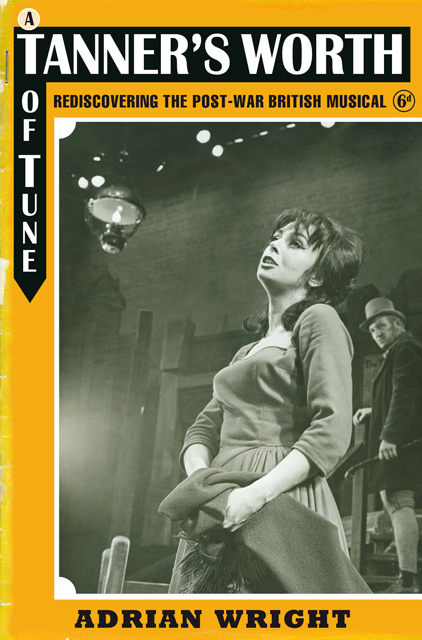Book contents
- Frontmatter
- Dedication
- Contents
- List of Illustrations
- Acknowledgements
- 1 Before and After: Identifying the British Musical
- 2 Delusions of Grandeur: Ivor Novello
- 3 Mastering Operetta: Noel Coward
- 4 Pastiche and Esoteric: Sandy Wilson
- 5 Resounding Tinkles: The plein air Musicals of Julian Slade and Dorothy Reynolds, Geoffrey Wright and Donald Swann
- 6 Away from Home: Adopted British Musicals
- 7 Community Singing: Realism and the British Verismo Musical
- 8 Specifically British: David Heneker, Monty Norman, Julian More and Wolf Mankowitz
- 9 To Whom it May Concern: The British Biomusical
- 10 Fin de Partie: John Osborne, Lionel Bart and After
- Appendix 1 Original Productions of British Musicals
- Appendix 2 Adaptations from Other Works, 1946–78
- Select Bibliography
- Index of Musical Works
- General Index
3 - Mastering Operetta: Noel Coward
Published online by Cambridge University Press: 01 March 2023
- Frontmatter
- Dedication
- Contents
- List of Illustrations
- Acknowledgements
- 1 Before and After: Identifying the British Musical
- 2 Delusions of Grandeur: Ivor Novello
- 3 Mastering Operetta: Noel Coward
- 4 Pastiche and Esoteric: Sandy Wilson
- 5 Resounding Tinkles: The plein air Musicals of Julian Slade and Dorothy Reynolds, Geoffrey Wright and Donald Swann
- 6 Away from Home: Adopted British Musicals
- 7 Community Singing: Realism and the British Verismo Musical
- 8 Specifically British: David Heneker, Monty Norman, Julian More and Wolf Mankowitz
- 9 To Whom it May Concern: The British Biomusical
- 10 Fin de Partie: John Osborne, Lionel Bart and After
- Appendix 1 Original Productions of British Musicals
- Appendix 2 Adaptations from Other Works, 1946–78
- Select Bibliography
- Index of Musical Works
- General Index
Summary
His knowledge of music being nil, the elementary fabrications which he fits to his own verses have to be written down, harmonised, jazzed-up and orchestrated by a corps of entrepreneurs . He only concerns us here because at one stage of his career he not only wrote, acted in and directed a handful of operettas or whatyou- will, but also instigated their music. The cloying Bitter-Sweet (1929) and the more characteristic Conversation Piece (1934) were the most successful; a share of the credit belongs to his anonymous confederates.
Gervase Hughes’ judgement is harsh. There is no evidence that anybody else wrote Coward’s music for him, although he certainly had assistants such as Elsie April and Robb Stewart who worked on his music with him. Perhaps it is simply that Coward was for all of his life much too busy to concentrate on his operettas, his musicals, his what-you-wills. It is perhaps too much to expect one man to write a catalogue of enduring plays, write and compose or ‘instigate’ popular songs and revues, write novels and short stories, and be a star of stage, screen, cabaret and gramophone records. There is the possibility that for Coward his musicals were of secondary importance, something to be picked up at regular intervals in his long life. Revues gave Coward his first very considerable successes, and some hit songs: in 1923 London Calling! (‘Parisian Pierrot’), in 1925 On with the Dance (‘Poor Little Rich Girl’), in 1928 This Year of Grace (‘A Room with a View’ , ‘Dance Little Lady’).
Bitter-Sweet
The run of revues was followed by Coward’s first ‘operetta’ , Bitter-Sweet (His Majesty’s Theatre, 12 July 1929; 697), written between 1928 and 1929. The title had an unexpected prescience about it, for there was a bitter sweetness about the fact that Coward was to suffer from the problem which affected many other British musical composers – his first musical provided a success he could not follow.
- Type
- Chapter
- Information
- A Tanner's Worth of TuneRediscovering the Post-War British Musical, pp. 45 - 69Publisher: Boydell & BrewerPrint publication year: 2010



